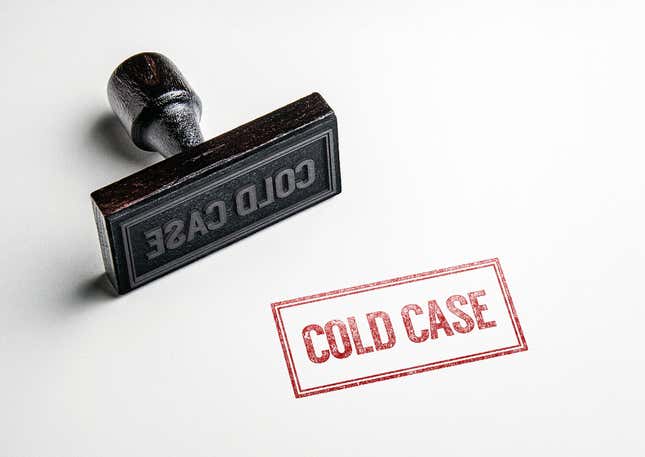
In 2019, former President Donald Trump signed a law commissioning the Civil Rights Cold Case Records Review Board, which would be granted the power to “declassify government files and subpoena new testimony in the hopes of reopening cases or revealing publicly why many were never fully investigated,” according to a Politico report from last year.
The board is to review dozens of unsolved lynchings of Black people, particularly across the South, in cases that date back decades. The legislation to assemble the board passed Congress with near-unanimous bipartisan support—but, apparently, the Trump administration dragged its feet on the whole thing and nothing got done. Now, President Joe Biden’s White House is reportedly taking action.
According to The Root’s sources in the Biden administration, an announcement will be made Friday afternoon announcing the review will finally be moving forward.
The administration revealed to The Root the first set of board nominees, all of whom the White House hopes will soon be approved by the Senate.
First on the list is professor and historian Dr. Clayborne Carson, who, according to the administration, “devoted most of his professional life to the study of Martin Luther King, Jr. and the movements King inspired.” Carson—who earned his doctorate from UCLA in 1975—has taught at Stanford University where he is Martin Luther King, Jr., Centennial Professor of History (Emeritus). Since he is an expert on all things MLK, Carson was invited by Coretta Scott King in 1985 to “direct a long-term project to edit and publish the authoritative edition of her late husband’s speeches, sermons, correspondence, publications, and unpublished writings.”
Next up is Instruction Archivist and founding member of the Atlanta Black Archives Alliance Gabrielle M. Dudley, who works at the Stuart A. Rose Manuscript, Archives, and Rare Book Library at Emory University in Druid Hills, Ga. Dudley develops courses and archives research assignments for graduate and undergraduate students and has taught courses on archives reference, access, and outreach for Clayton State University in Morrow, Ga. She has also taught classes on Black print culture for the California Rare Book School.
Next, we have Pulitzer Prize-winning journalist Hank Klibanoff. In 2007, Klibanoff, along with writer and historian Gene Roberts, won the Pulitzer Prize in History for co-authoring the book The Race Beat: The Press, the Civil Rights Struggle and the Awakening of a Nation. Klibanoff is also the creator and host of the narrative history podcast Buried Truths, which is produced by WABE (NPR) in Atlanta.
The final member of the first set of review board nominees is Margaret Burnham, who has served as a state court judge in Massachusetts, as well as a civil rights lawyer who, in 1970, represented civil rights activist icon Angela Davis. Burnham, who graduated from Tougaloo College in Jackson, Ms., and the University of Pennsylvania Law School, is currently a professor at Northeastern University School of Law where she has taught since 2002.
So hopefully the board member nominees get approved and are able to make real progress in solving these murders and bringing white supremacists to justice or at least giving closure to the family members of the victims.
According to Politico, the review board was first proposed by Ted Cruz (which is surprising), Vice President Kamala Harris, who was a U.S. senator at the time, and Sen. Doug Jones (D-Ala.), who, successfully prosecuted the two Klansmen responsible for the infamous 16th Street Baptist Church bombing in Birmingham that killed four Black girls in 1963.
Jones expressed concerns to Politico last year that nothing was getting done in reopening the cold cases despite the review board being approved with overwhelming bipartisan support.
“I am concerned those funds will go unused if the board is not put in place soon,” Jones said. “It passed the Senate with unanimous consent. The president issued a very nice statement when he signed it. And I don’t understand not doing it right now. This needs to be done. I just don’t get it.”
“It’s important as ever,” he continued. “We are talking about a system of justice that has let people down back in the day. And I think these communities need to see and understand the full details of what was going on back in those days. Because if we’re not careful we will make some of the same mistakes. And I think some of those mistakes are being made even now. I think that if we can open these files up, the way Congress intended, then I think it will help with the overall healing process.”

